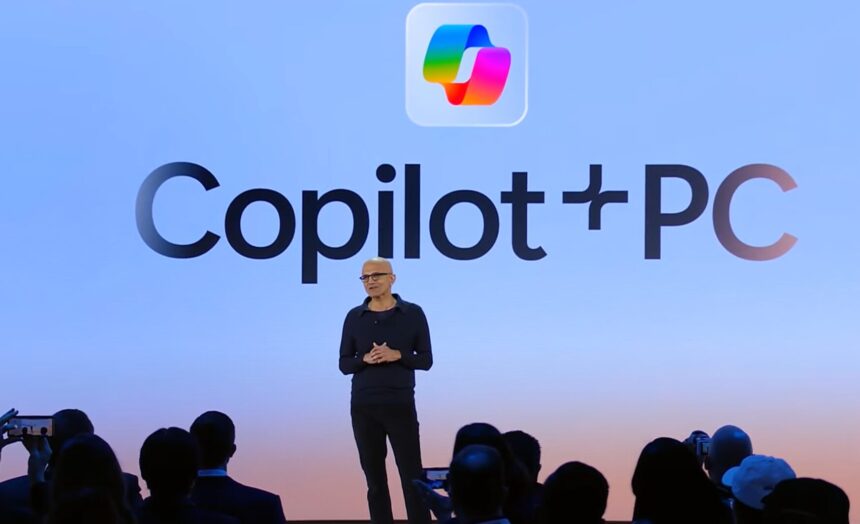Microsoft’s recent unveiling of the Copilot+ PC sent shockwaves through the tech industry. This innovative machine boasts a powerful AI-powered experience, but it raises a crucial question: are laptops purchased in 2024 already headed for obsolescence?
This article delves into the details of the Copilot+ PC, explores its potential impact on recent laptops, and offers insights into what the future holds for PC users.
The Rise of the Copilot+ PC and its AI Advantage
The concept of “AI PCs” has been brewing for a while, but Microsoft’s Copilot+ takes it a giant leap forward. It’s more than just powerful hardware; it’s a tightly integrated ecosystem. This system combines the cutting-edge Qualcomm Snapdragon X series processors with a re-architected Windows 11 (possibly a preview of the upcoming 24H2 update) and next-generation AI features.
What Makes Copilot+ Stand Out?
Here’s what sets Copilot+ PCs apart:
- Unmatched Speed: The combination of Snapdragon X processors and a streamlined Windows 11 promises blazing-fast performance, potentially making Copilot+ PCs the undisputed speed champions according to Microsoft.
- Enhanced AI Features: Copilot+ showcases a suite of AI-powered features that leverage its unique architecture. These include real-time language translation, intelligent noise cancellation for calls and video chats, and even AI-assisted content creation – a true game-changer for creative professionals.
- Always-On Battery Life: The Snapdragon X series processors are renowned for their exceptional battery efficiency. Copilot+ PCs boast extended battery life, ideal for users who are constantly on the go.
Potential Impact on 2024 Laptops: A Cause for Concern?
The news might not be ideal for those who purchased laptops in 2024, especially those with Intel Meteor Lake or AMD Ryzen 7000 CPUs. While powerful, these processors reportedly lack the necessary architecture to support the full range of Copilot+ features. This raises concerns about planned obsolescence. While 2024 laptops will still function, they may not be able to leverage the full potential of future Windows updates optimized for Copilot+.
Is There Hope for 2024 Laptops?
Don’t despair just yet! Here are a few things to consider:
- Gradual Rollout: The initial rollout of Copilot+ PCs might be limited. It may take time before these machines become mainstream.
- Software Updates: Microsoft might offer some level of compatibility for older hardware, at least for basic Copilot+ functionalities.
- Focus on Specific Needs: If your current laptop meets your needs and you don’t require cutting-edge AI features, there’s no need to rush for an upgrade just yet.
The Future of the PC Landscape: A Glimpse into the Evolving Ecosystem
The Copilot+ PC marks a significant shift in the PC landscape. Here’s what we might see in the coming years:
- A Two-Tier System: We might witness a market divided between traditional laptops and high-end Copilot+ machines catering to users who demand the most advanced AI integration.
- Focus on Upgradability: Manufacturers might prioritize designs that allow for easier processor upgrades in the future, extending the lifespan of laptops.
- Software Innovation: We can expect continuous development in AI-powered software that pushes the boundaries of what PCs can do.
Making an Informed Decision: Choosing the Right PC for You
If you’re considering a laptop purchase, here are some tips to help you make an informed decision:
- Evaluate Your Needs: Assess your computing needs. If you require heavy-duty AI applications or prioritize long battery life, a Copilot+ PC might be worth the investment.
- Consider Upgradeability: Look for laptops with upgradeable components, especially the processor, to stay future-proof for longer.
- Wait and Watch: If you’re unsure, waiting a few months might be wise. See how the Copilot+ ecosystem evolves and how traditional laptop manufacturers respond.
The Bottom Line
The Copilot+ PC is certainly a revolutionary product, but it doesn’t necessarily render 2024 laptops obsolete overnight. The decision ultimately depends on your individual needs and priorities. By staying informed and carefully evaluating your options, you can make the best choice for your computing future.







